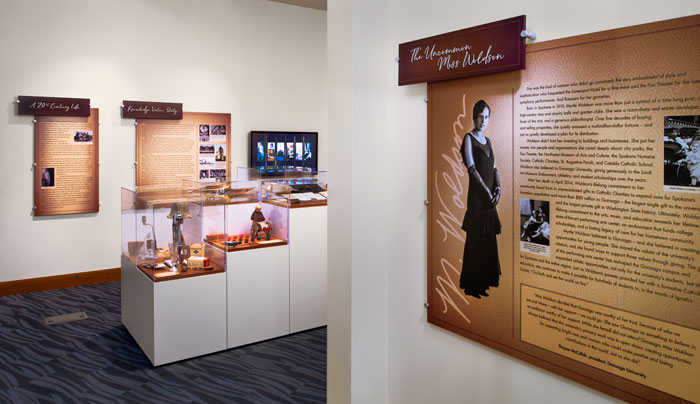
The Myrtle Woldson Collection, on the campus of Gonzaga University, employs narrative panels, photography, and personal objects to tell the story of the enigmatic Spokane philanthropist.
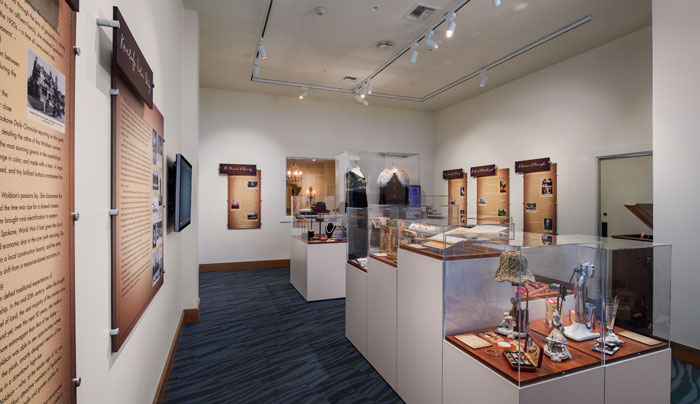
The 600-sq.-ft. exhibit space was designed to provide for ease of traffic flow in and around the display cases while providing room for viewing.
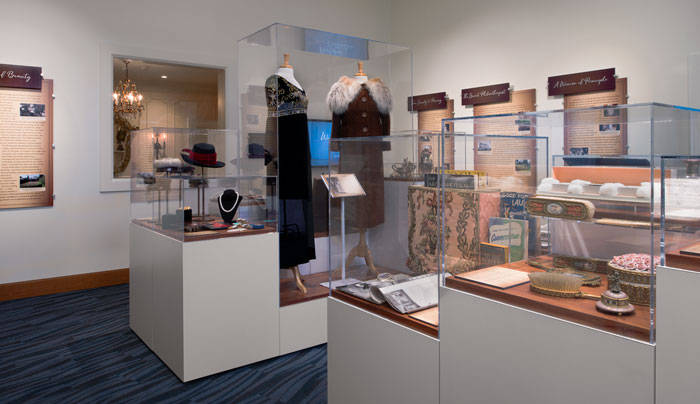
Custom casework with Plexiglas tops was created to accommodate nearly 130 artifacts from Woldson’s estate, including pieces from her extensive wardrobe.
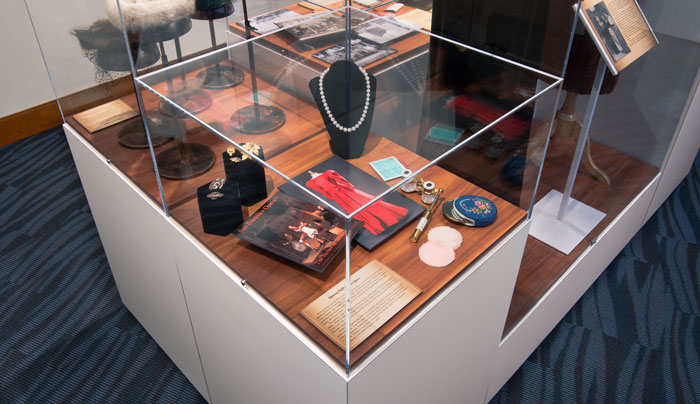
Descriptive labels, developed by Gonzaga students, identify the objects and ephemera within each case; period music plays from a 1919 Columbia Grafonola.
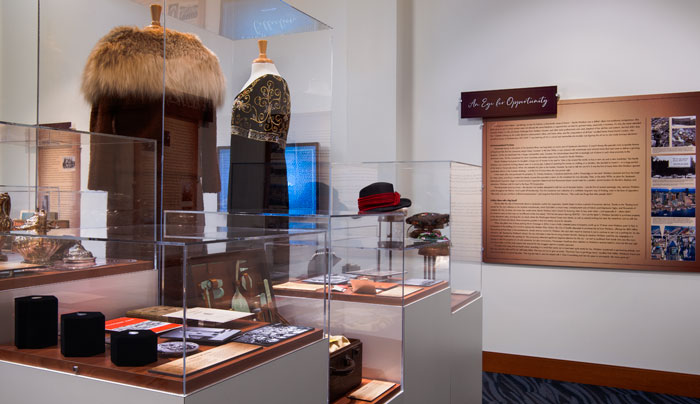
The modular casework was designed to adapt to future arrangements and to changing artifacts. Two touchscreens offer more information on Woldson, including oral histories, photographs, and descriptions of nearly 140 furniture pieces and accessories from her home.
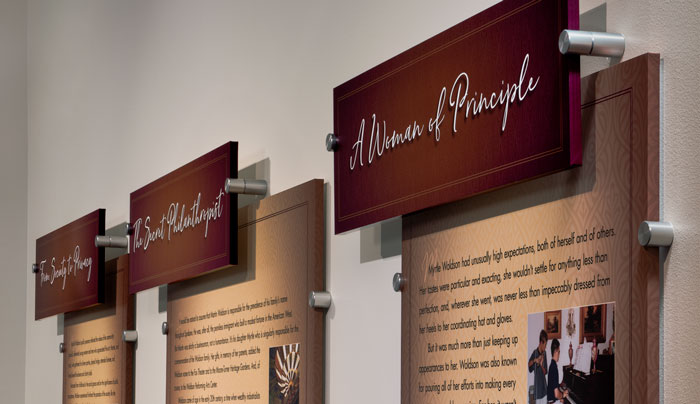
Mounted on the walls surrounding the exhibit space, each narrative panel addresses a specific chapter of Woldon’s life, defined not by a specific time period, but by a unique characteristic.
The installation of the Myrtle Woldson Collection: 16 days in under two and a half minutes.
helveticka provided full curation services – including research, design, writing, fabrication, and installation oversight – for SPOMa: Spokane Modern Architecture, 1948–73.
In addition to nearly 400 photographs of some of the finest Mid-Century Modern architecture in the Pacific Northwest, the exhibit featured art, furniture, and music of the era.
Custom display systems and clever mounting hardware kept the look and feel of the exhibit as streamlined and as minimalist as the architecture itself.
Complementing an exhibit in the Northwest Museum of Arts & Culture’s main gallery was a short documentary film chronicling the history of Spokane’s Modern architecture movement.
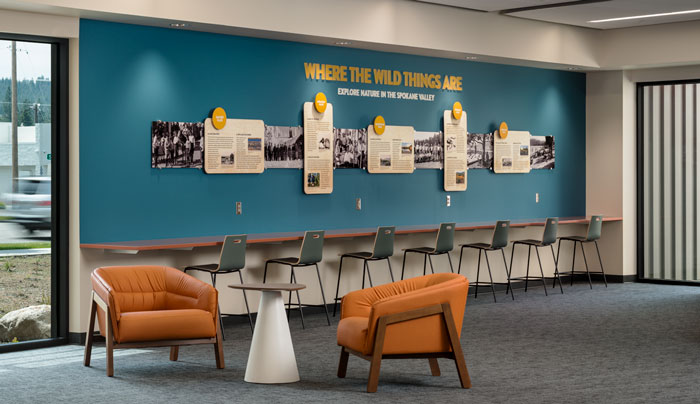
The Spokane Valley Library, one of ten branches operated by the Spokane County Library District, serves more than 270,000 visitors per year. The library’s new Integrus-designed building features an interpretive display that encourages visitors to explore local recreational areas and learn more about their historical importance.
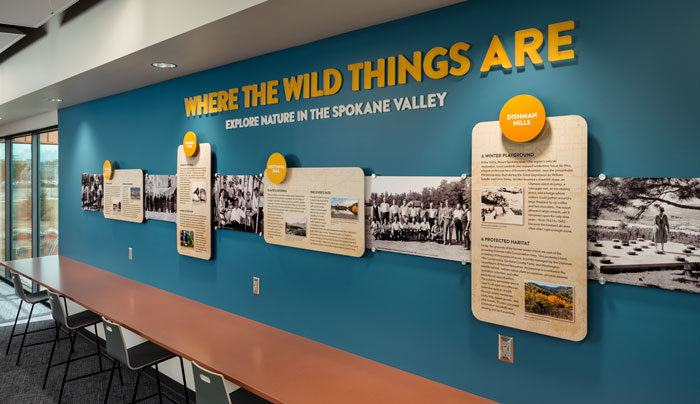
This three-dimensional display highlights five significant natural areas located in the Spokane Valley. Archival images combined with contemporary photos provide historical context and show how these areas may be enjoyed today. Additional large historic images commemorate how residents of the past enjoyed outdoor activities throughout the region and its four seasons.
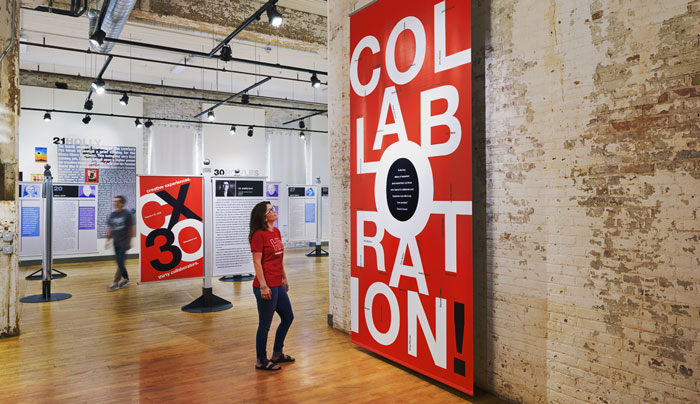
Visitors to CX30: Creative Experiences, Thirty Collaborators – a celebratory exhibit honoring helveticka’s 30 years in business – were greeted by a 6' x 12' banner featuring the names of 30 collaborators important to the firm’s success over the years.
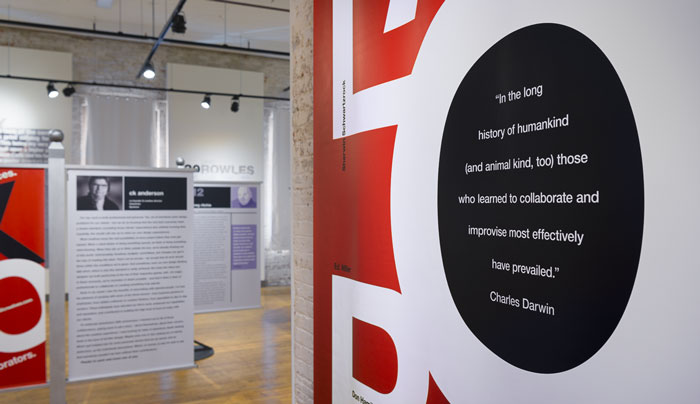
A quote from Charles Darwin (apocryphal, but too good not to use) set the tone for the exhibit.
Introductory panels by helveticka’s co-founder and creative director, CK Anderson.
Vinyl banners, each printed with a story by one of the exhibit’s 30 collaborators, were suspended within custom-fabricated display stands.
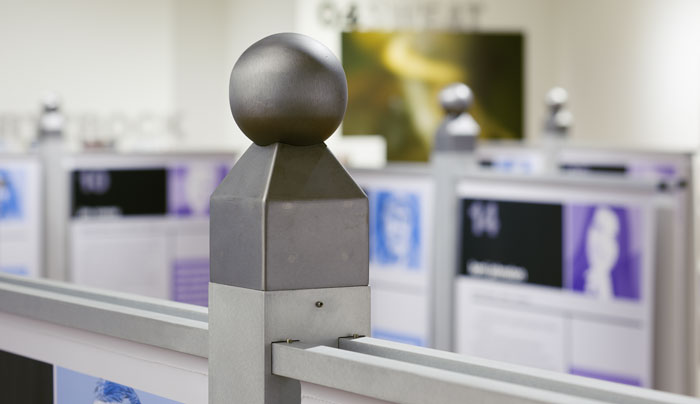
The 6.5' aluminum display stands were capped with steel finials.
The perimeter of the gallery was lined with select collaborators’ work, along with descriptive panels.
Visual art was also part of the exhibit, and included the work of photographers, illustrators, cartoonists, and graphic designers.
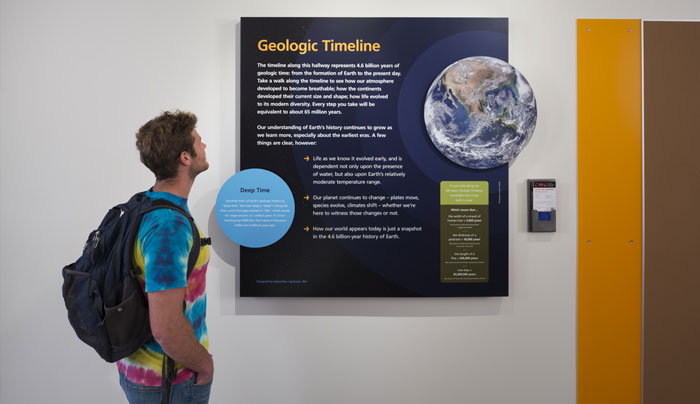
In collaboration with Integrus Architecture, who designed the facility, helveticka created a geologic timeline exhibit for CWU’s Discovery Hall.
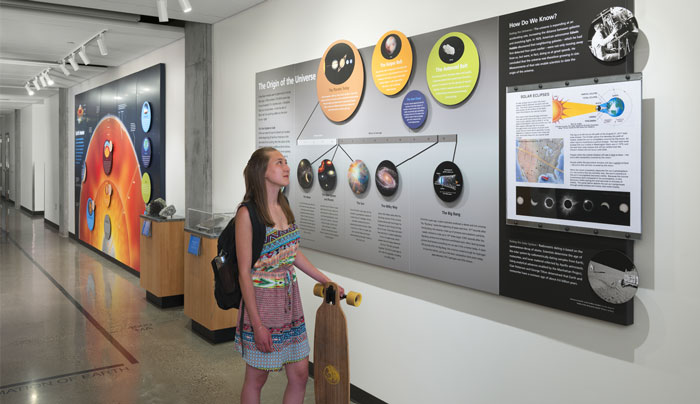
The exhibit maps to an actual scale model of the timeline built into the floor of a 58.5-meter-long corridor. helveticka’s design team worked closely with CWU faculty members on panel content.
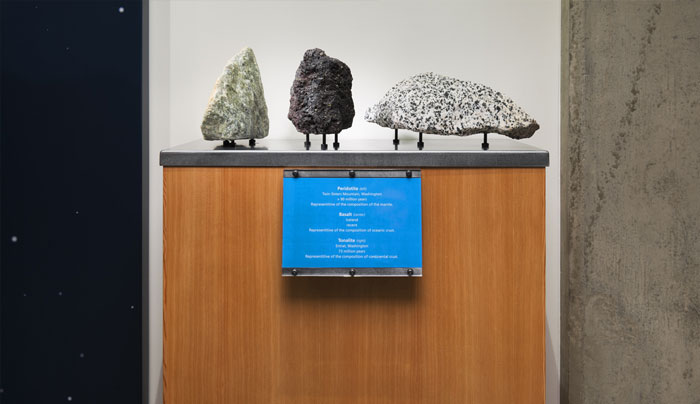
Eight custom-built display cases house rare rock samples from around the globe – and, in the case of a meteorite slice, from outer space as well. The cabinets were finished to match existing building casework.
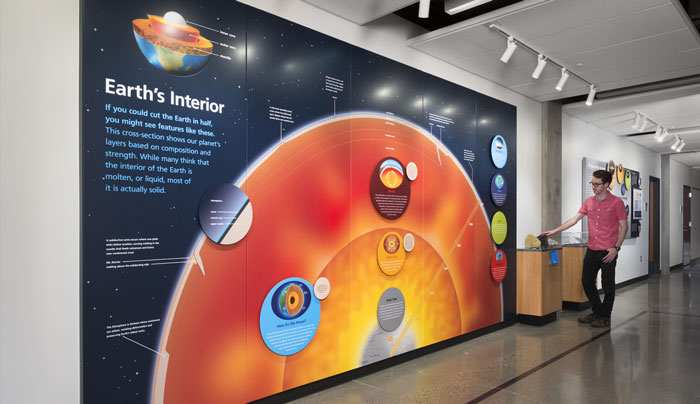
For the “Earth’s Interior” section, eight-foot-tall digital graphics were mounted onto custom-fabricated metal panels. helveticka also performed installation services for the exhibit.
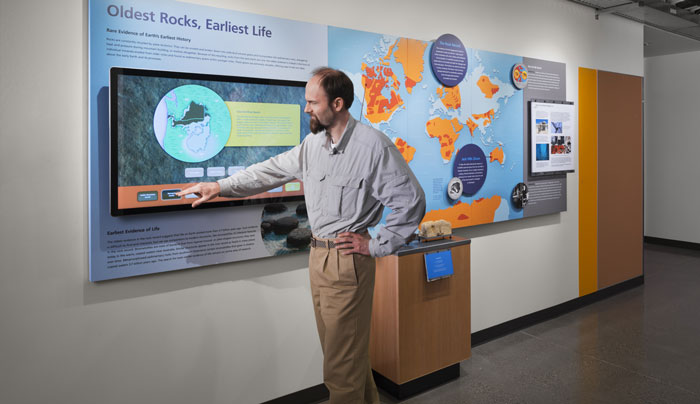
A pair of touchscreens – with content designed and programmed by helveticka – help round out and localize billions of years of geologic history.
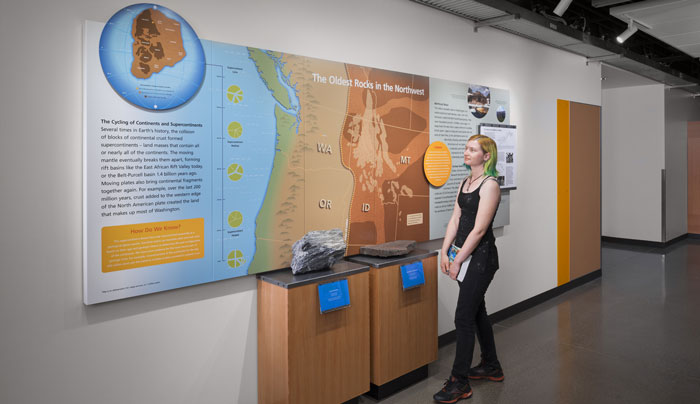
helveticka worked with the architects to select and locate the display’s lighting system. 2' x 2' Plexiglas panels (far right) enable students and faculty to change and update related subject content.
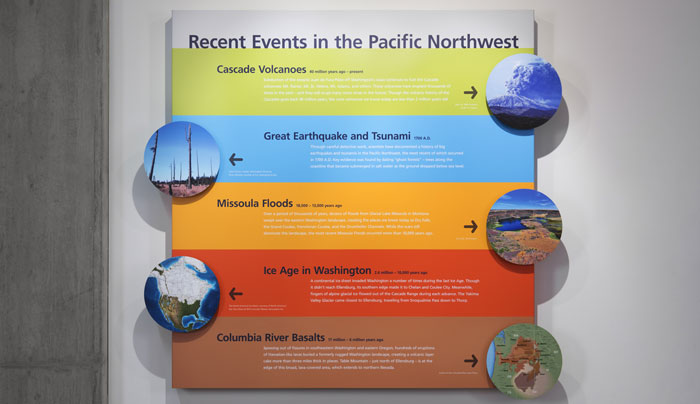
The exhibit was designed for prospective students and their parents, touring K-12 classes, and even current students – whether science majors or not.
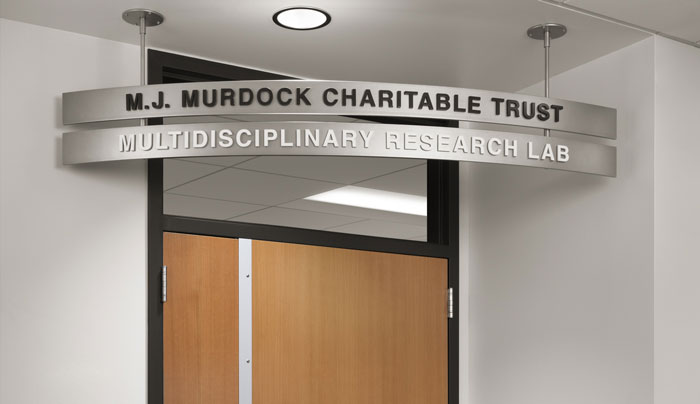
In addition to the geologic timeline, helveticka was asked to develop a donor recognition system to acknowledge sponsored classrooms and labs.
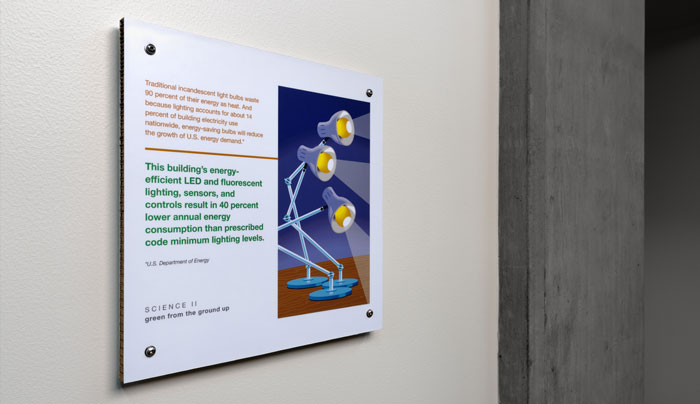
Throughout the building, a series of 15 signs explains the efforts undertaken by CWU to achieve Leadership in Energy and Environmental Design (LEED) Silver certification from the U.S. Green Building Council.
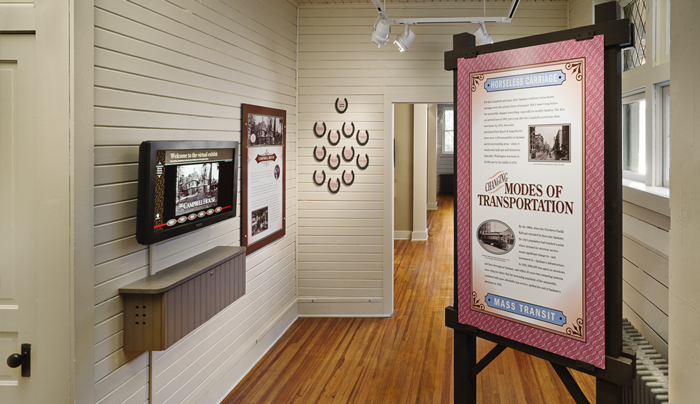
The entry area of the Northwest Museum of Arts & Culture’s Campbell House Visitor Center includes an interactive touchscreen and a short history of the Campbell House restoration project.
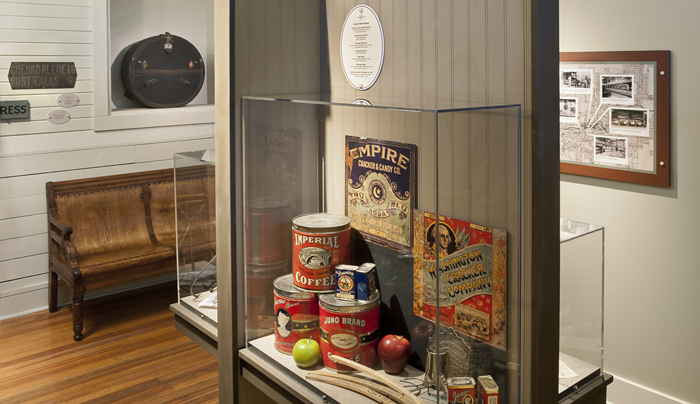
One of the custom-built display units designed to house objects and ephemera related to the exhibit.
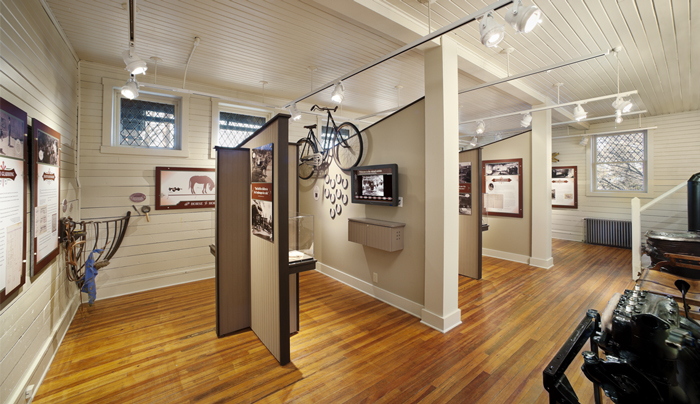
The main exhibit area is divided into three bays, mimicking what was likely the original configuration of the stables housed in the same space 100 years ago.
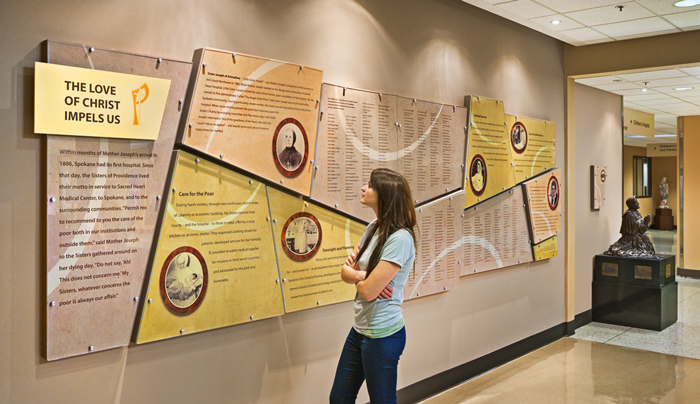
Honoring Spokane’s Sisters of Providence, a 22-foot-long wall display features the names of every Sister who served during Sacred Heart Medical Center’s 125-year history.
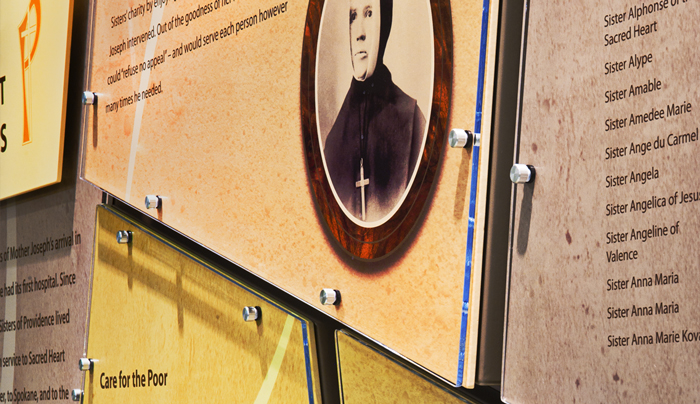
A detail of the display shows the protective Plexiglas covering over each of the custom-fabricated and powder-coated aluminum panels.
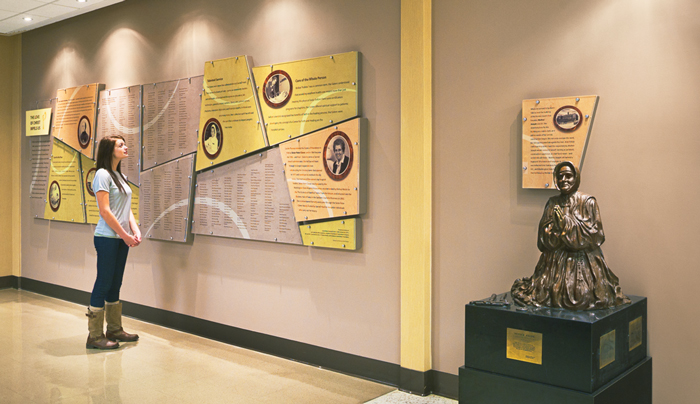
In addition to the comprehensive roster, the display features archival images and supporting narrative – as well as a sculpture of Mother Joseph, who established Sacred Heart Hospital in 1886.
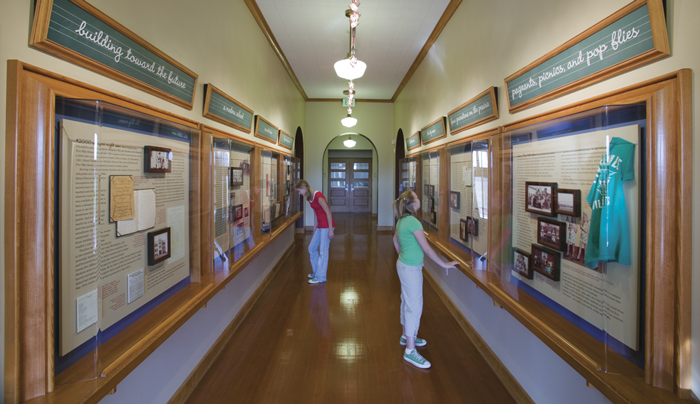
An interpretive exhibit sharing the history of education on the Five Mile Prairie north of Spokane, The Schoolhouse Gallery is housed within the 1939 Five Mile School.
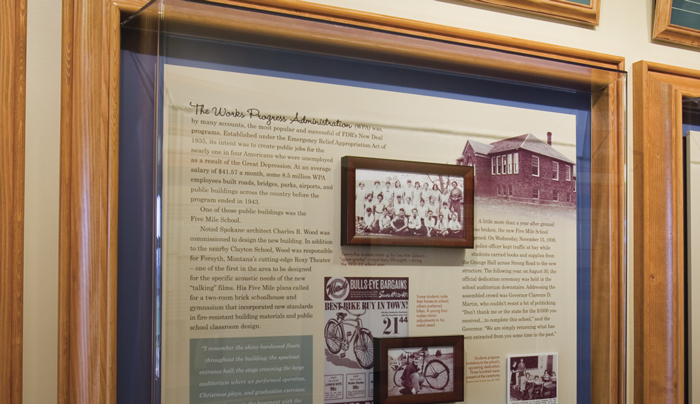
Hand-crafted casework complements the interiors of the schoolhouse; faux chalkboards and a script-style font add whimsy.
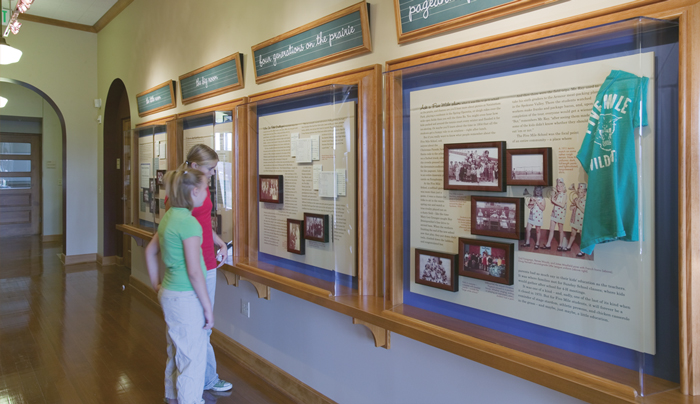
Ephemera like report cards and progress reports helped to humanize the exhibit while supplementing the narrative.
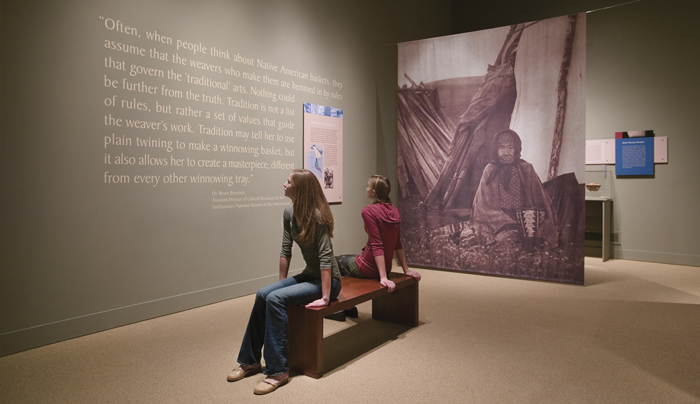
Bringing to light 100 American Indian baskets from a collection of nearly 3,000, Fibers of Life demonstrated both the beauty and the utilitarian aspects of the weaver’s art. The space was designed to promote contemplation and reflection.
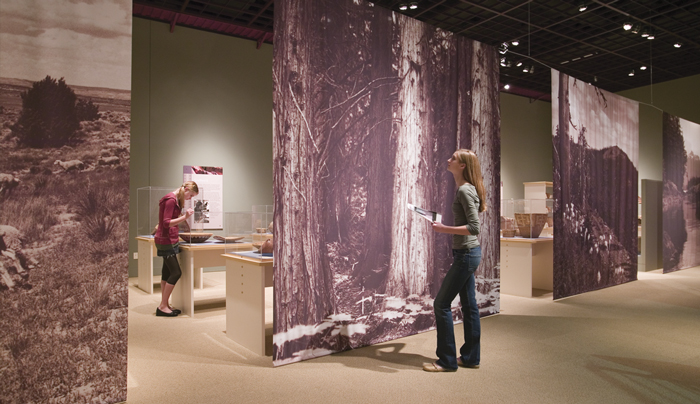
Suspended photographic tapestries, each 10' square, provided a sense of place while creating a separation between the baskets and the introductory area.
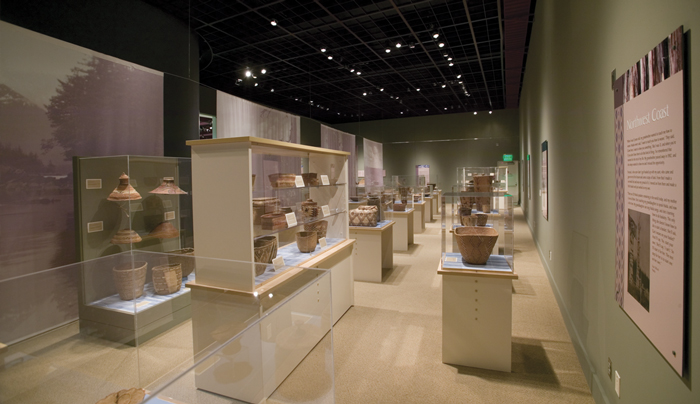
The density and arrangement of the exhibit evoked the intricacy of the basket patterns themselves.
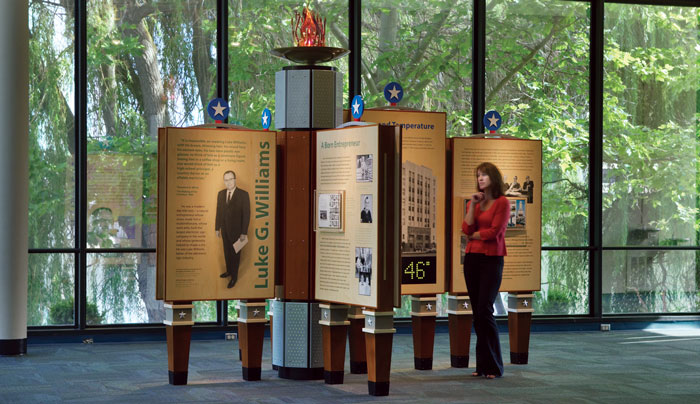
On permanent display in Spokane’s Convention Center, the Luke Williams Memorial Tribute is an homage to one of the area’s foremost entrepreneurs and philanthropists.
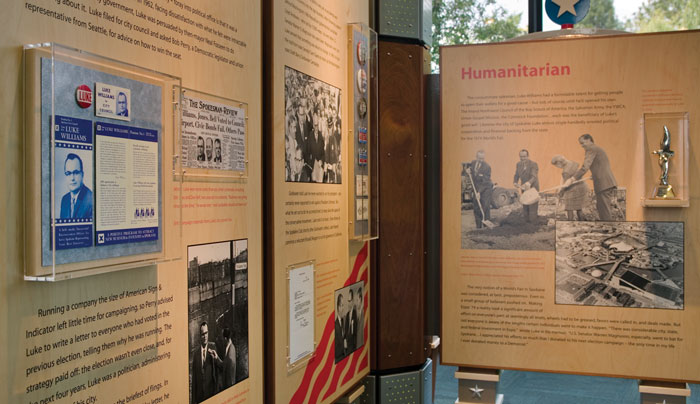
Artifacts and ephemera are enclosed in protective casework to provide both depth and realism.
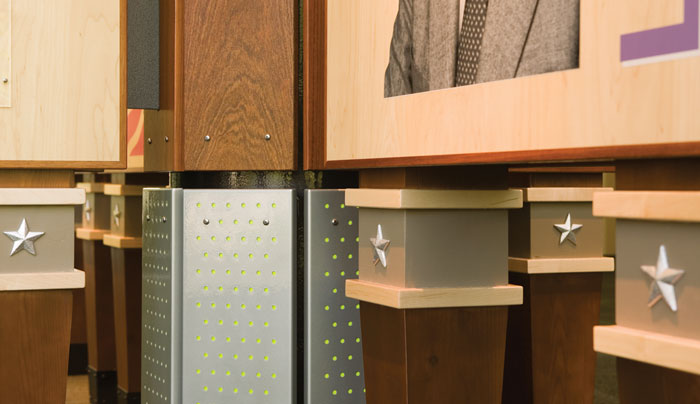
The warmth of natural wood is juxtaposed with the industrial look of metal.
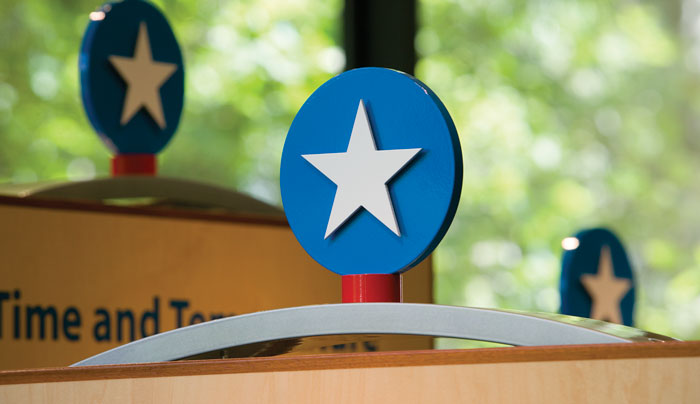
Elements of the American flag combine to form a patriotic motif.